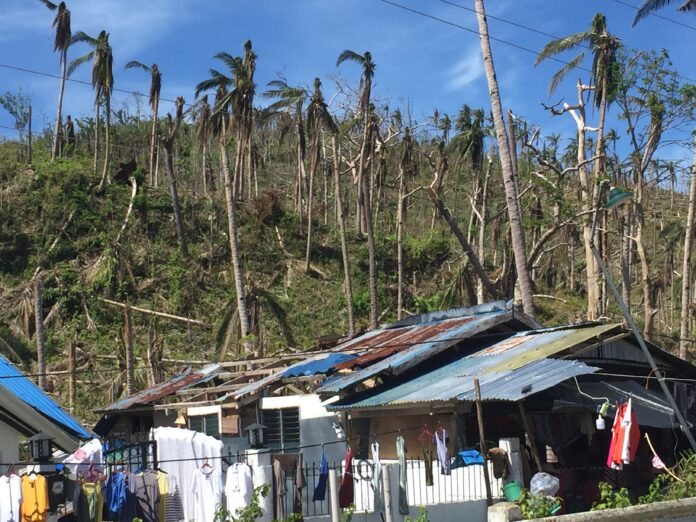SOUTHERN LEYTE – Two devastating occurrences in the province, the coronavirus disease 2019 (COVID-19) and super typhoon Odette (international name, Rai) in December 2021, placed a heavy toll on the coconut farmers and entrepreneurs. Their recovery is a gigantic challenge to both the government and private sector.
More than one year had passed, but until at present they are still far from the state of recovery. In the previous SLT issue, a Panaon island constituent, Ery Cordova, lamented that people from their community used to rely on income from coconut but now they cannot anymore.
One keen and progressive thinking coconut farmer and entrepreneur, Lodi Carbonilla, said that he had to give up coconut farming for the time being because it was no longer sustainable. Lodi, who left his job abroad, is the proprietor of the six-hectare King David Farm in Sogod, Southern Leyte. The coconut business was successful that he was able to establish six branches of the Buko Moko (brand) business which sold coconut water and fruit shake. He was also able to launch the King David spiced vinegar product.
Carbonilla talked about the dire need of financing the coconut farmers, who were overwhelmingly confronted by the need to rehabilitate their farms. He also suggested for the provincial and national government to consider the planting of hybrid nuts which are comparably high yielding than the old coconut variety.
The coconut hybridization program of the Philippines, of which the Department of Science and Technology, through Philippine Council for Agriculture, Aquatic and Natural Resources Research and Development (PCAARRD), is in charge of doing the research is still ongoing. These are being handled by the Philippine Coconut Authority (PCA) Zamboanga Research Center, PCA Davao Research Center, PCA Albay Research Center, University of the Philippines Los Baños, and Visayas State University.
Meanwhile, farmers and entrepreneurs are having difficulty in getting access to financing their projects. The requirements are too steep for them to comply, and if ever limited financing is available, this is on a piece-mill basis, not comprehensive enough to give them leverage for success and “develop value-added business,” according to interviewed entrepreneurs.
The municipal, city and provincial governments should seriously give focus on the revival of the coconut industry, along with other food security programs, through fund allotment in their respective yearly budget, said the officers of the Southern Leyte Chamber of Commerce and Industry (SLCCI).


